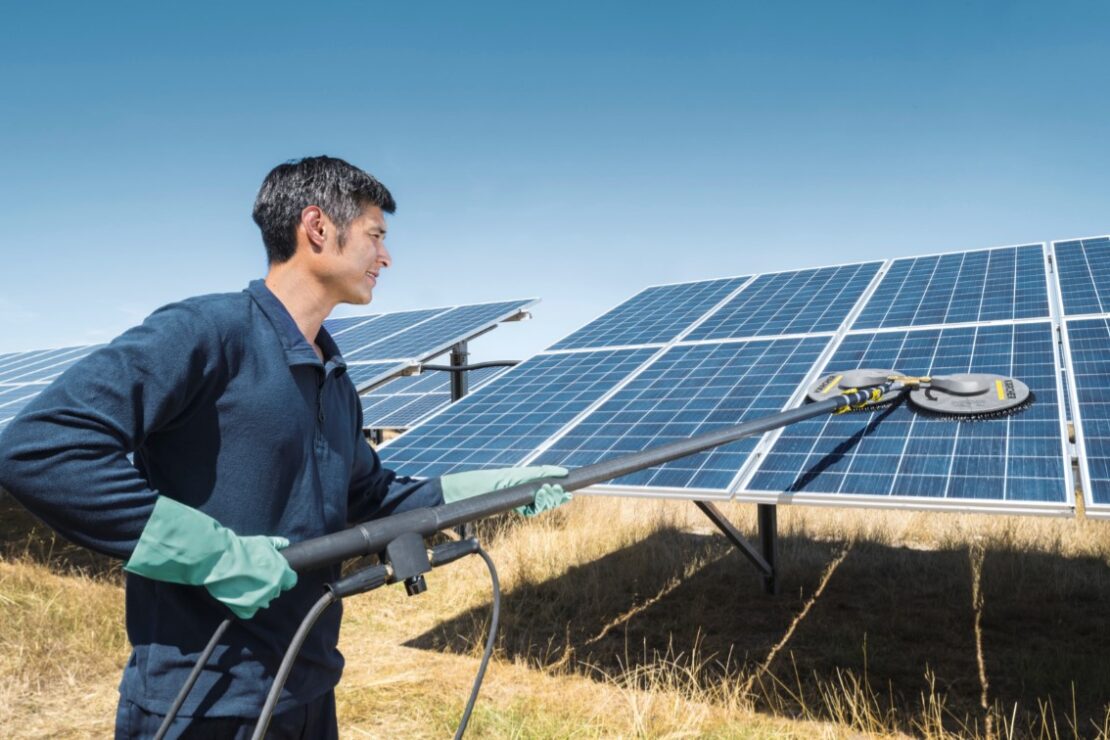Solar energy continues to be a leading solution in our quest for sustainability and cleaner energy. However, the efficiency of solar panels can be significantly affected by how well they are maintained. In this comprehensive guide, we’ll explore the best cleaning solutions and equipment for solar panels in 2024, ensuring that your investment operates at peak performance.
Understanding the Need for Clean Solar Panels
The accumulation of dirt, debris, and other materials on solar panels can obstruct sunlight, leading to a noticeable decrease in energy production. Dust, bird droppings, and leaves can form a layer over the panels, which can reduce their efficiency by 10-25%. This reduction in performance emphasizes the need for regular cleaning to maintain optimal energy output.
The frequency of cleaning solar panels largely depends on the environment in which they are installed. Areas with high dust levels, such as desert regions, or places prone to bird droppings may require more frequent cleanings. It’s generally recommended to inspect your panels regularly and clean them at least once every 6 months to ensure they operate efficiently.
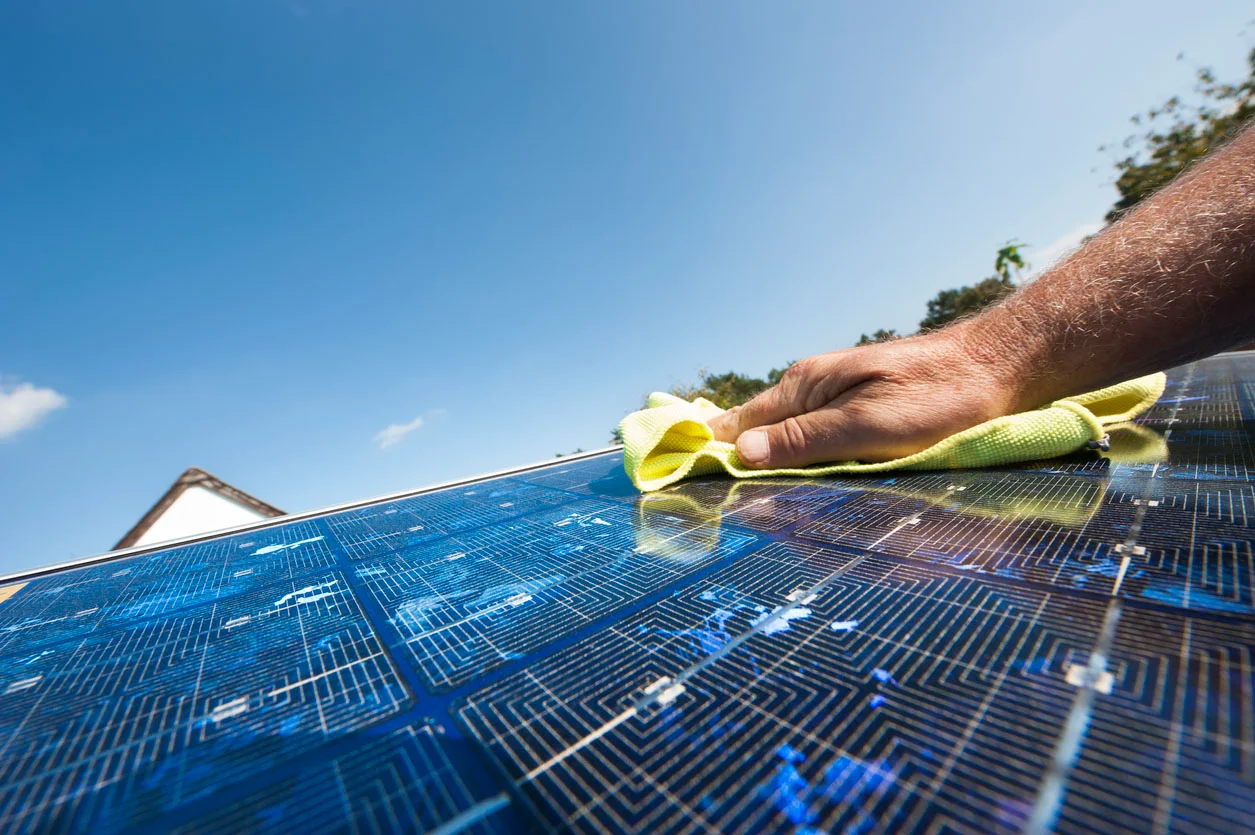
Selecting the Proper Cleaning Solutions
When choosing solutions, it’s important to opt for biodegradable and non-abrasive options. Harsh chemicals can damage the panels’ surface, leading to decreased efficiency. A mild, eco-friendly soap mixed with water is often sufficient for removing most types of dirt and debris without harming the panels or the environment.
While commercial solutions specifically designed for solar panels are available, they are not always necessary. A simple mixture of warm water and mild dish soap can be just as effective. However, for tougher grime, a specialized solution can provide a deeper clean without risking damage to the panels.
Opting for the Right Cleaning Equipment
The ideal tools are soft brushes and squeegees. These tools allow for gentle yet effective cleaning, removing dirt and grime without scratching the surface. Brushes with long handles can also help reach difficult areas without the need for stepping on the panels, which can cause damage.
For larger solar installations or those seeking more convenience, automated systems can be a wise investment. These systems range from robotic cleaners that move across the surface of the panels to spray systems that rinse the panels at scheduled intervals. While more expensive upfront, automated systems can save time and ensure regular cleaning, which is vital for maintaining efficiency.
Water-fed poles, equipped with a soft brush head and connected to a water source, offer a safe and effective way to clean solar panels from the ground. These systems allow for easy access to rooftop panels without the risk of climbing ladders. Hose attachments with soft spray options can also be used to rinse the panels after scrubbing, ensuring all soap and debris are removed.
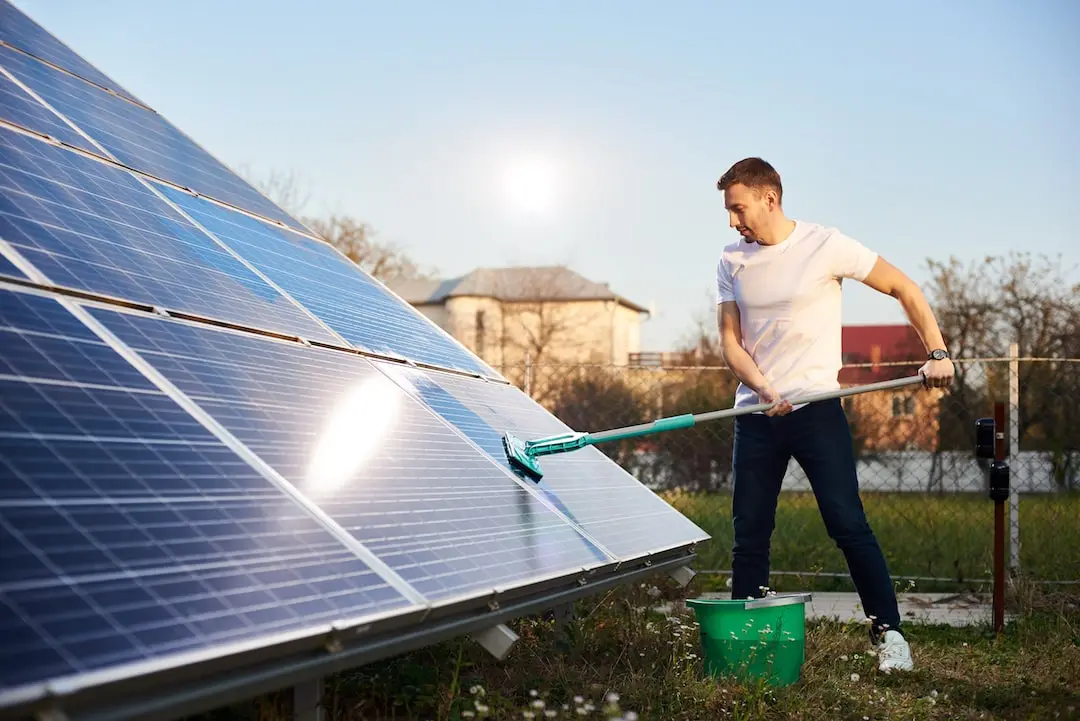
Evaluating Professional Cleaning Services
Opting for professional services can provide several benefits, particularly for large installations or difficult-to-reach areas. Professionals have the right tools, equipment, and expertise to clean panels safely and efficiently. They are trained to identify and address potential issues, such as micro-cracks or electrical faults, which may not be visible to the untrained eye. This preventive maintenance can help avoid costly repairs down the line.
When selecting a professional service, it’s important to look for experienced, reputable companies. Check for reviews, ask for references, and ensure they have proper insurance. A good service provider will conduct a thorough assessment of your installation and offer a customized schedule based on your specific needs and environmental factors. Transparency about their methods, solutions used, and cost estimates is also crucial in making an informed decision.
Understanding the Environmental Impact
Choosing eco-friendly cleaning solutions and methods reduces the environmental impact and ensures that the process of maintaining solar energy systems remains in harmony with their purpose: to provide clean, renewable energy. It’s important to consider the lifecycle of cleaning products and equipment to minimize waste and avoid harmful chemicals.
In regions where water scarcity is an issue, it’s vital to consider water usage when cleaning solar panels. Innovative dry cleaning methods and water-efficient tools like automated systems or microfiber cloths can significantly reduce water use. Additionally, capturing and reusing water, when possible, can help conserve this precious resource while keeping your panels clean.
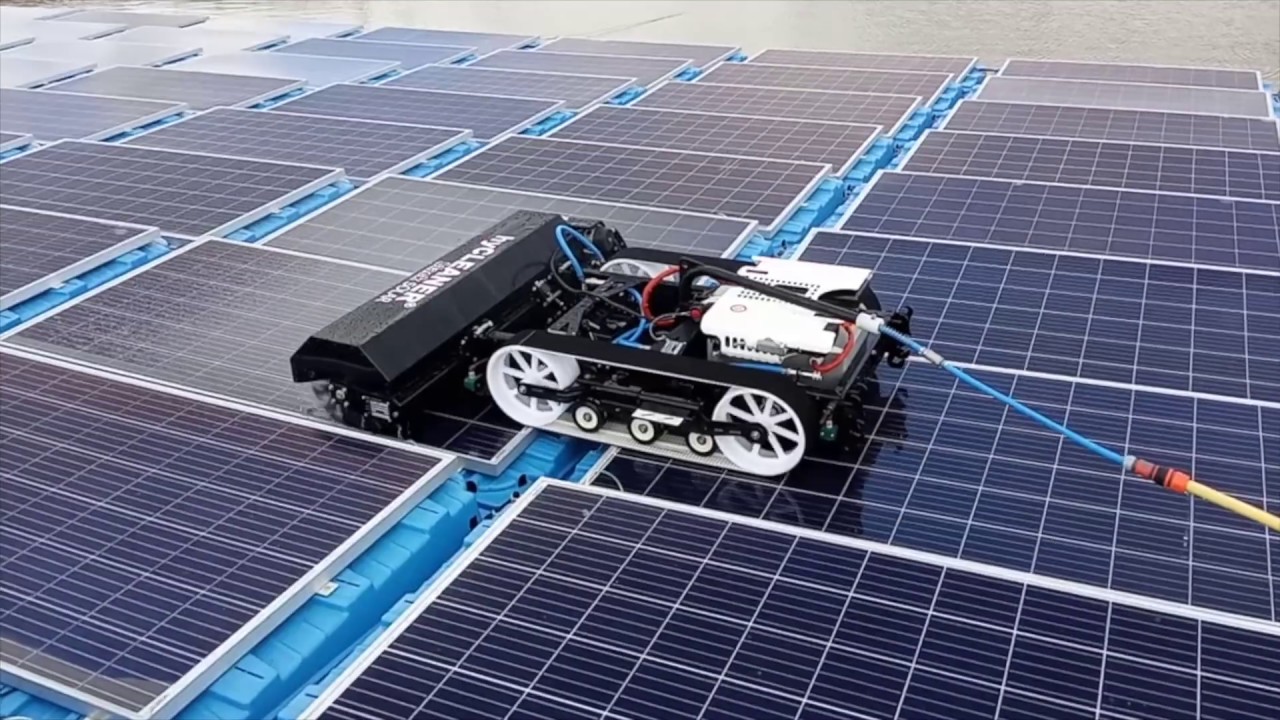
Technological Advancements in Cleaning Equipment
The field of cleaning is evolving, with technological advancements leading to more efficient and safer cleaning solutions. Robotic cleaners, for instance, are becoming increasingly sophisticated, capable of navigating various panel layouts and gradients while minimizing the risk of damage. These robots can adapt to different environmental conditions and are equipped with sensors to optimize patterns for maximum effectiveness.
As the demand for solar energy grows so does the need for efficient cleaning systems. The future of maintenance lies in the integration of smart technology, such as IoT (Internet of Things) devices, which can monitor panel conditions schedule cleaning based on weather conditions and energy output, and even diagnose issues. This level of automation and intelligence not only streamlines maintenance but also maximizes energy production.
Seasonal Cleaning Strategies
The efficiency can be significantly impacted by seasonal changes, necessitating different cleaning approaches throughout the year. In areas with heavy snowfall, winter may require more frequent inspections and removal of snow to prevent damage and maintain energy production. Spring, often accompanied by pollen and bird activity, might call for more thorough cleaning to remove these specific types of debris.
Regions prone to extreme weather conditions, such as hurricanes, monsoons, or dust storms, require special consideration. Before such events, it’s important to inspect and secure them to minimize potential damage. Post-event cleaning is also crucial, as these conditions can leave heavy residue, affecting the panels’ performance. Establishing a routine for pre- and post-weather event maintenance can ensure your solar system remains efficient and safe throughout the year.
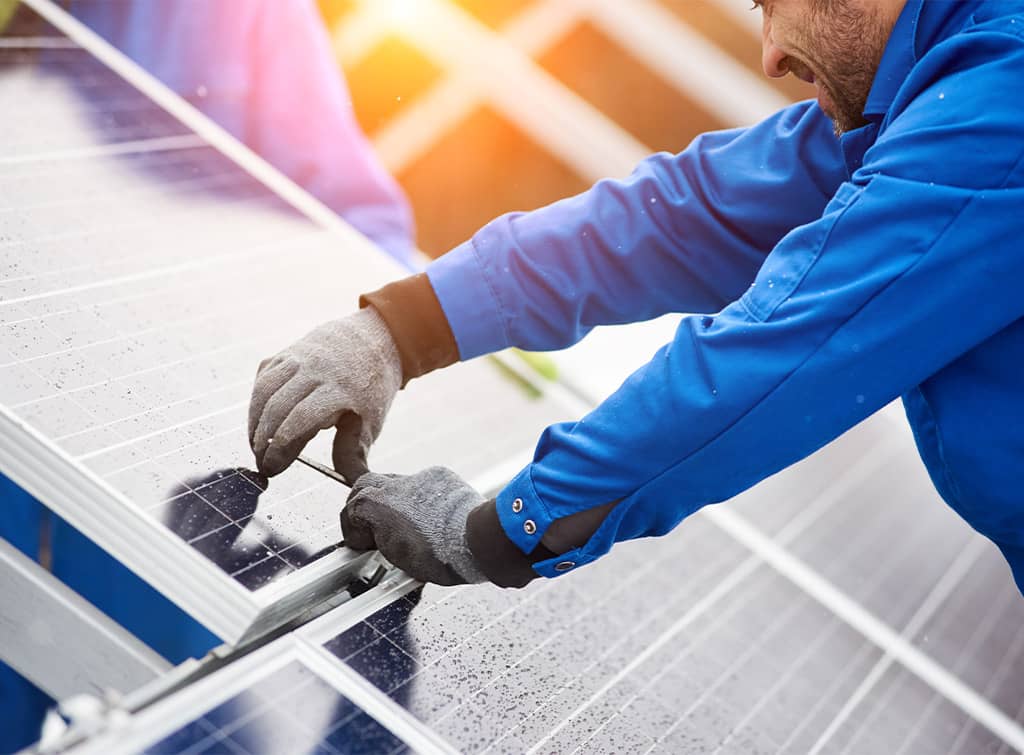
Conclusion
Maintaining clean solar panels is essential for ensuring their efficiency and longevity. By selecting the appropriate cleaning solutions and equipment, you can protect your investment and continue to enjoy the benefits of clean, renewable energy. Whether you choose to clean your panels yourself or opt for professional services, regular maintenance will keep them performing at their best for years to come. Remember, a little upkeep goes a long way in maximizing the return on your solar energy investment.




